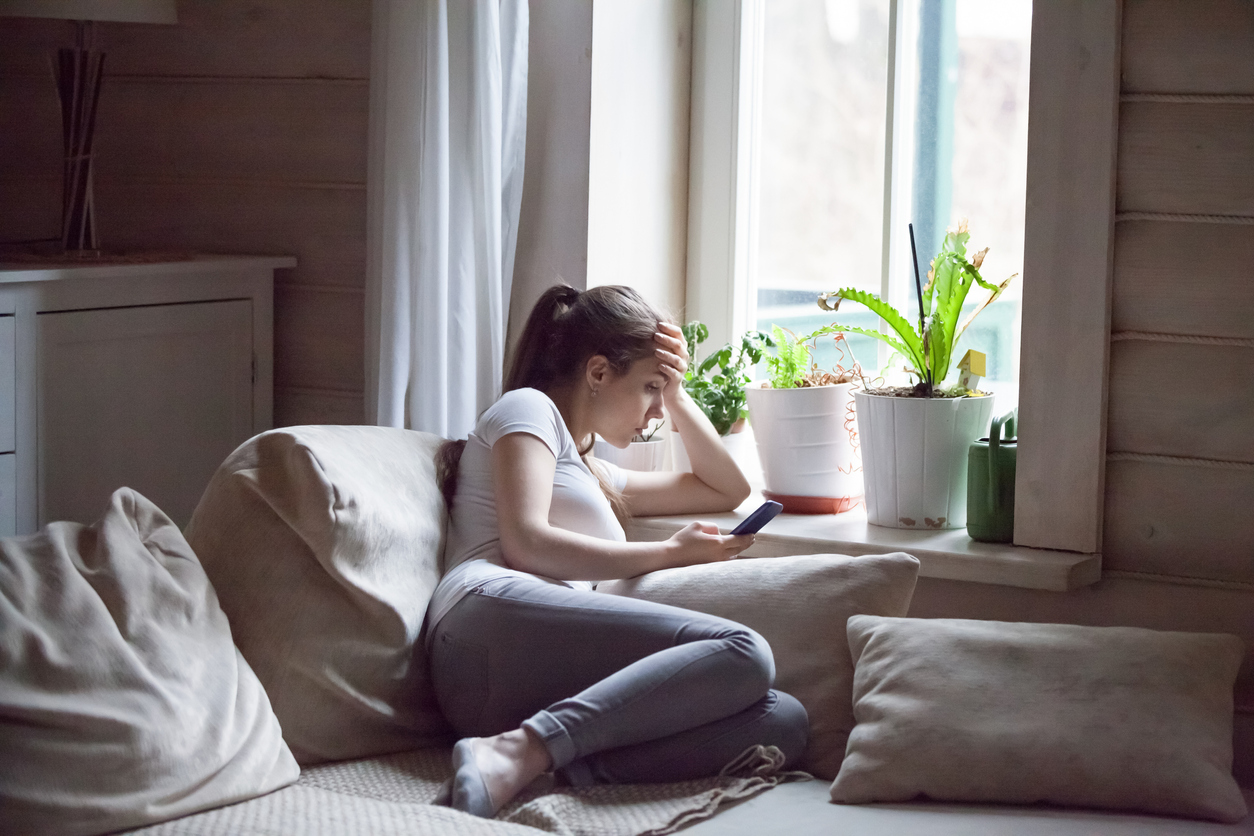Excessive screen time can negatively affect mental health, leading to issues like sleep disturbances, reduced physical activity, and increased feelings of isolation. It can also contribute to anxiety and depression, especially when it replaces face-to-face interactions and physical activities.
Today’s teens are more depressed than previous recorded generations, even when accounting for factors such as a greater awareness of mental health issues. Today’s teens are also more likely to struggle with anxiety disorders, suicidal thoughts, and eating disorders.
Furthermore, some of today’s teens are using smartphones more than experts agree is healthy, to the point that it may be impacting the quality of their sleep, as well as their attention span. Studies also show that social media usage can have a negative impact on teen self-esteem and contribute to eating disorders and anxiety problems.
Let’s also look at some other key points of information. Today’s teens are more well-informed. Today’s teens and young adults are remarkably media-literate and able to spot fake information. They’re less likely to use drugs and engage in sexual activity later than their parents and older peers. They’re more passionate about climate change and political action than previous generations. Many teens also benefit from social media, and studies that show negative effects in some teens through smartphone usage also show that other teens see no negative effects as a result of increased screen time.
It’s hard to get a full picture when there are contradicting points being made – but the main point here is to illustrate that screen time, like many other things, has its upsides and its downsides. What’s most important, however, is to acknowledge that teens with existing mental health issues tend to struggle more with the negative sides of the internet and general screen time. In that sense, their smartphone and internet usage reflect the problems they are already facing.
The Upsides of Screen Time
Before we address the benefits of access to the World Wide Web, it’s important to point out that technological progress is often like Pandora’s Box. A tool as widespread and integrated in today’s world as the Internet – and subsequently, social media – will never go back in the box, and it’s up to parents and their children to navigate the question of how to grow up in this world and make the most of its benefits while avoiding its worst problems.
As for benefits, there are plenty. Never has there been such a wealth of information, and the potential to learn. Teens can self-study up and past the university level, through bespoke online courses and free information. They can learn languages and valuable skills at a rate never before possible. They can instantaneously communicate with people from around the world, at a fraction of the cost of long-distance calls in decades past.
Teens themselves say that social media and other internet tools help them feel more connected to one another, more expressive, and more creative. While we rightfully fear and condemn online echo chambers, research points out that teens and adults today are actually exposed to a wider range of beliefs and political thinking than they would have been with cable and printed news.
Furthermore, digital literacy is becoming increasingly important in a world that is defined, more and more, by its digital spaces. In the unfortunate absence of physical spaces for meeting and mingling, learning how to behave and socially adapting to digital norms will be crucial for young adults, whether to network or forge lifelong friendships.
The Risks of Excessive Screen Time
There are many hypotheses behind why excessive screen time – and especially social media – plays a negative role in teen mental health. From what we know today, social media and smartphone usage don’t necessarily make teens more anxious or depressed, but they can make existing anxieties and depressive thinking worse.
One potential reason is that the anonymity and lack of face-to-face interaction behind online communication can fuel more vicious and hateful cyberbullying. While real-life bullying has stagnated or barely slowed down, cyberbullying has grown into a bigger problem.
Sure, a fake picture might not seem comparable to getting punched in the face, but the emotional damage and humiliation can often be much more severe, and permanent – the pain of a shove or a kick fades, but many instances of cyberbullying and online slander remain archived on the Internet forever or are resistant to takedowns.
Another reason is the effect between social media use and self-esteem. Teens can reinforce a negative self-image by consistently scrolling through the profiles and posts of thousands, if not tens of thousands of people who seem more successful, more attractive, more popular, and so on. It’s normal for teens to compare themselves with others, to the point of debilitation.
Then, there is the way that excessive screen time can polarize a teen’s thoughts, which can radically alter their worldview and make them feel even worse about the state of things. Entire algorithms have – sometimes unintentionally – led millions of young people to consume content that ranges from outright hateful to self-harming, because of the way platforms like YouTube and TikTok promote content that drives the most engagement, despite controversy.
Balancing Screen Time and Mental Health
If your teen consistently shows signs of struggle, then ask them if they’d consider talking to someone with you – be it a counselor or therapist. Be at their side through every step of getting help and stay with them until they’re comfortable talking with someone on their own. Make your love and concern felt.
Talking about professional help if you suspect signs of serious depression or anxiety can be helpful. Sometimes, depressive thoughts are the result of grief or loss. Maybe they’ve just broken up with someone and feel like dying. Maybe their low mood is the result of a pet’s death. Temporary increases in anxiety or sadness are normal – in teens and adults alike.
If their thoughts and feelings persist for multiple weeks, however – with no sign of a decrease in intensity – then their sadness might just have been a trigger for a mental health problem. Seeking treatment with your teen can help them approach their screen time and social media use as one element in a larger treatment plan.
Conclusion
Excessive social media use and screen time can negatively impact a teen’s self-esteem and contribute to their anxiety, their depression, and even their eating disorders. There are positive aspects to social media, and in general, it is impossible to keep teens away from what has effectively become a vital form of communication in the 21st century.
However, it is important to consider that teens with certain mental health problems will be more likely to be affected by the adverse effects of excessive social media use, and that seeking treatment for their mental health – fostering a stronger self-image, building their mental resilience, and improving their coping skills – can help protect them from some of the negative aspects of social media.
We at Visions focus on providing comprehensive mental health treatments to teens via our residential treatment programs. We utilize talk therapy, experiential therapy, and medication management to help teens build the toolkit they need to continue to address their mental well-being into adulthood. Get in touch with us today to learn more.








